Introduction
Properly feeding your Bernese Mountain Dog through all life stages is key to its health.
- Need specific nutrition that changes from puppyhood to senior years
- Guide for feeding and caring for your Bernese Mountain Dog to help them thrive
1. Nutritional Needs of a Bernese Mountain Dog
Understanding your dog's nutritional needs ensures their long-term health.
- Large Breed Considerations: Large and can weigh between 70 to 115 pounds
- Joint Health: Include glucosamine and chondroitin in their diet to support joint health
- Caloric Needs: Monitor intake to avoid overfeeding, which can lead to obesity
- Growth Stages: Adjust their diet according to growth stages to support overall development
- Breed-Specific Needs: Research any additional nutritional requirements
Best Practices:
- Regularly include joint supplements like glucosamine and chondroitin
- Carefully monitor and adjust caloric intake to maintain a healthy weight
- Adapt their diet to support different growth stages and specific breed needs
For further reading on the dietary needs of large breeds, you can visit AKC's Nutrition Guide.
2. Feeding Your Bernese Mountain Dog Puppy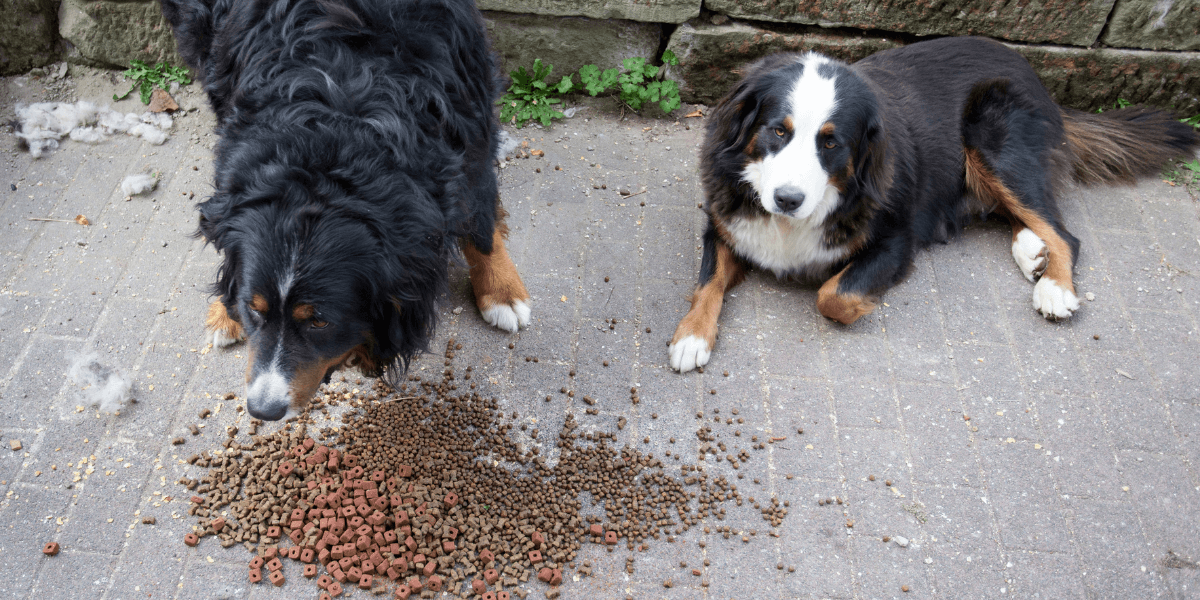
Proper nutrition sets the foundation for a healthy dog.
- Frequency and Portions: Feed puppies 3-4 times daily; reduce to 2 meals a day as they grow
- High-Quality Puppy Food: Choose high-quality, large-breed puppy food with essential nutrients
- Avoid Overfeeding: To prevent rapid growth, which stresses developing bones and joints
- Feeding Schedule: Stick to a consistent feeding schedule to support digestion
- Weight Monitoring: Regularly check your puppy’s weight to ensure proper growth
Best Practices:
- Measure food portions to avoid overfeeding
- Provide fresh water at all times
- Gradually transition to adult food around 12 to 18 months
3. Nutrition for Adult Bernese Mountain Dogs
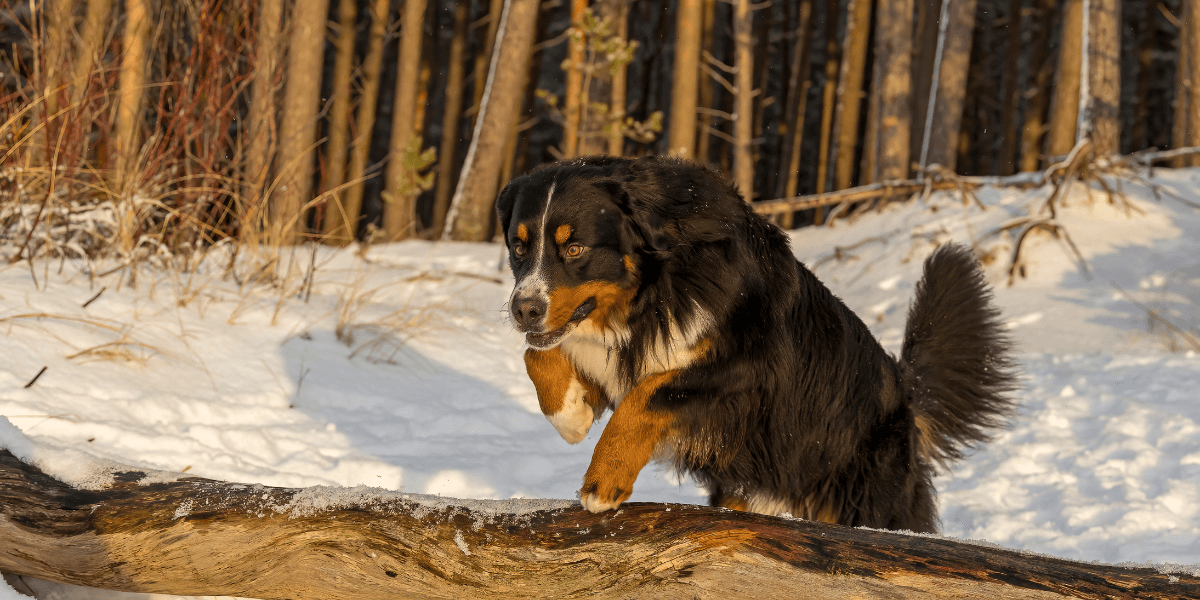
Maintaining a balanced diet is crucial once your dog reaches adulthood.
- Balanced Diet: Include the right balance of proteins, fats, carbs, vitamins, and minerals
- Protein Sources: High-quality proteins like chicken, beef, and fish are vital for muscle maintenance
- Healthy Fats: Include fish oil and other healthy fats for skin and coat health
- Portion Control: Feed adult dogs twice daily, adjusting portions by activity and weight.
- Dental Health: Provide dental chews or dry food to support dental health
- Fresh Water: Ensure a constant supply of fresh water to keep your dog hydrated
Advice:
- Avoid feeding table scraps or high-fat treats
- Monitor their weight regularly to prevent obesity
- Consult with your vet to adjust your diet based on any health changes
4. Special Considerations for Senior Bernese Mountain Dogs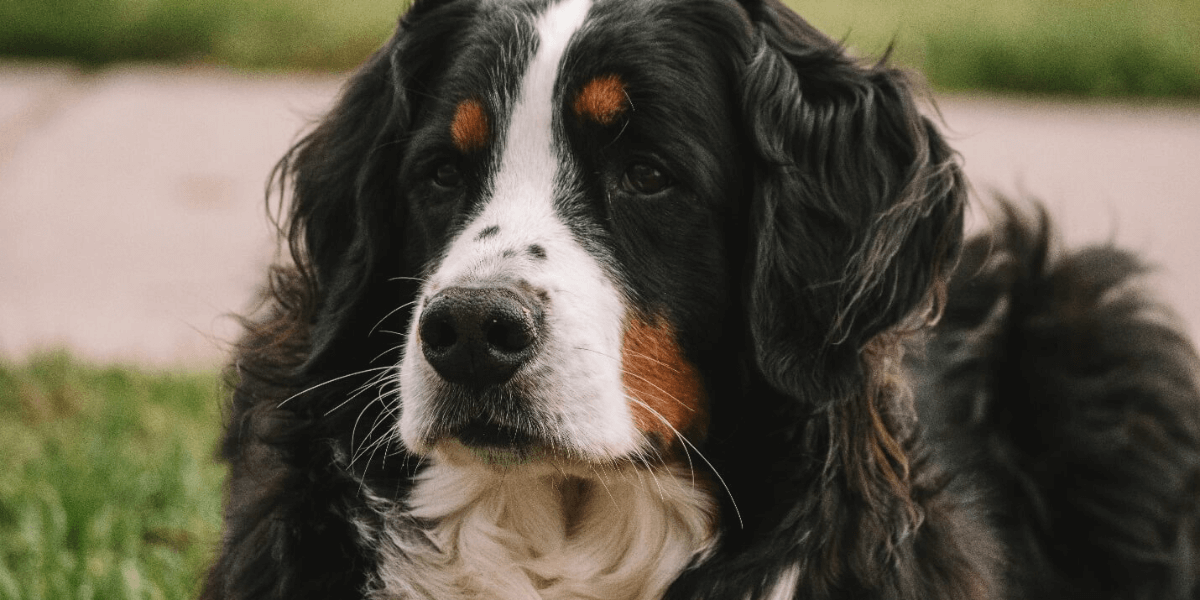
Seniors should adjust their diet for slower metabolism and health issues.
- Reduced Calories: Senior dogs need fewer calories due to decreased activity levels
- Joint Supplements: Add supplements to support mobility and reduce arthritis symptoms
- Easily Digestible Food: Choose high-fiber foods that are easier to digest
- Hydration: Ensure your senior dog has plenty of fresh water to stay hydrated
- Protein Intake: Maintain adequate protein levels to support muscle mass in senior dogs
Best Practices:
- Feed smaller, more frequent meals to aid digestion
- Monitor for weight loss or gain and adjust portions accordingly
- Ensure they have a comfortable eating area to reduce strain on joints
Discover essential tips to keep your senior Bernese Mountain Dog healthy, just like these guidelines for aging German Shepherds.
5. Homemade vs. Commercial Diets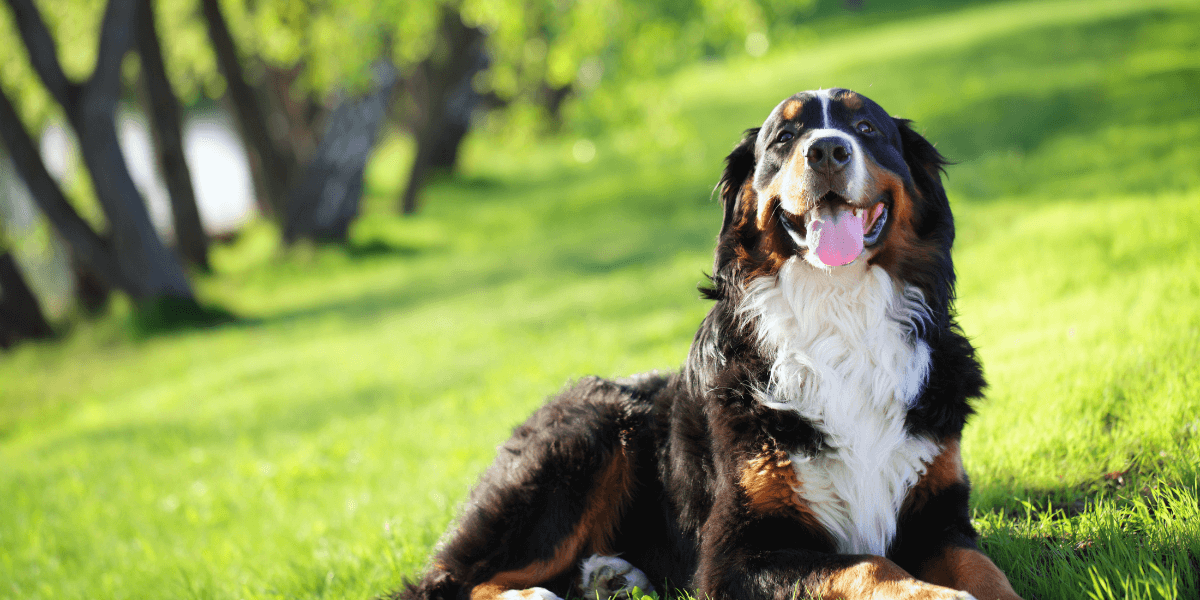
Choosing between homemade and commercial diets depends on your dog's needs and balanced nutrition.
- Commercial Diets: High-quality commercial foods meet all nutritional needs
- Homemade diets: Allows customization but requires careful planning for full nutrition.
Tips for Homemade Diets:
- Consult with a veterinary nutritionist to create a balanced diet plan
- Include a variety of protein sources, vegetables, and grains
- Supplement with vitamins and minerals as recommended
Discover the pros and cons of each diet in this detailed guide.
6. Treats and Snacks: Healthy Options for Your Bernese

Treats are great rewards; choose healthy options and give them in moderation.
- Healthy Treats: Choose natural treats and avoid artificial additives
- Homemade treats: It can include sweet potatoes, carrots, and lean meats for healthy options
- Caloric Considerations: Include treats in your dog's daily caloric intake to avoid overfeeding
- Training Treats: Use small, low-calorie treats for training to prevent excess calorie intake
- Allergen Awareness: Be mindful of potential allergens in treats to avoid adverse reactions
Recommended Treats:
- Freeze-dried meat treats
- Raw vegetables like carrots and green beans
- Low-calorie commercial treats
7. Common Feeding Mistakes and How to Avoid Them
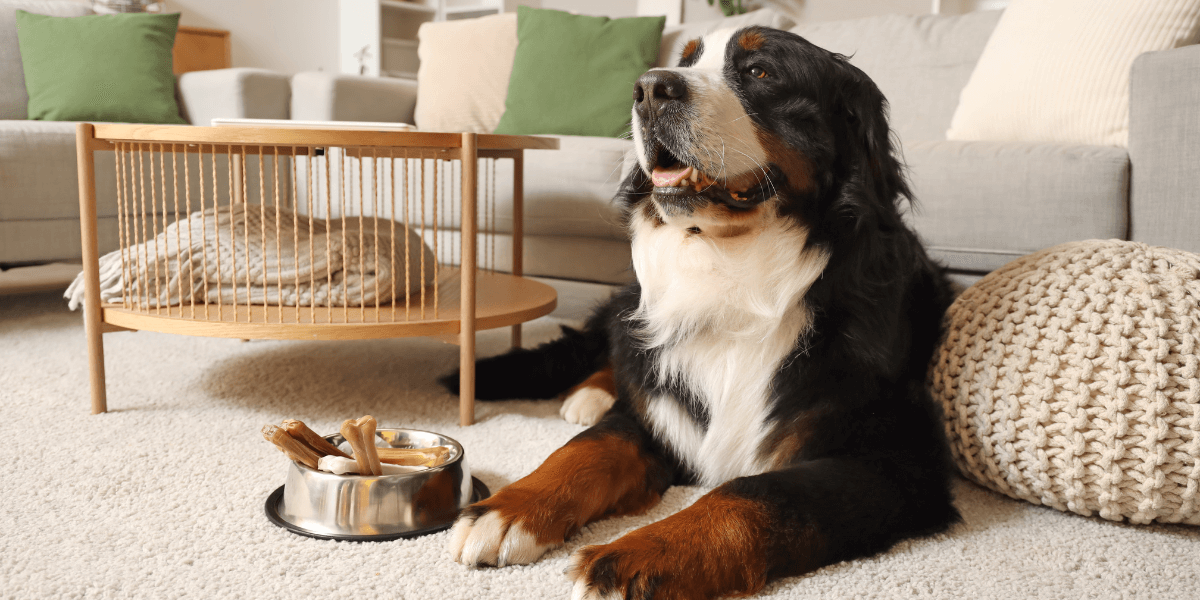
Avoid feeding mistakes to keep your Bernese Mountain Dog healthy and happy.
- Overfeeding: Stick to recommended portions to prevent obesity and joint problems
- Inconsistent Feeding Schedule: Maintain a consistent feeding schedule to regulate digestion
- Ignoring Food Labels: Read food labels to ensure nutritional standards for large breeds
- Scraps: Avoid feeding table scraps to prevent unhealthy weight gain and bad habits
- Hydration: Ensure your dog has constant access to fresh water for proper hydration
Best Practices:
- Use a measuring cup to serve accurate portions
- Create a feeding routine and stick to it
- Monitor your dog's weight and adjust portions as needed
Prevent feeding mistakes and ensure proper nutrition for your Bernese with this guide on Great Dane diets.
FAQs
1. What is the best food for a Bernese Mountain Dog puppy?
- Choose a high-quality puppy food designed for large breeds
2. How much should I feed my adult Bernese Mountain Dog?
- Feed your adult Bernese Mountain Dog twice daily, following the portion guidelines
3. What are the key ingredients for senior dog food?
- Look for foods with joint-supporting supplements
4. Can I mix dry and wet food for my Bernese Mountain Dog?
- Yes, mixing dry and wet food can enhance palatability and provide additional moisture
5. How do I manage a Bernese Mountain Dog’s weight?
- Adjust portion sizes based on activity level and monitor weight regularly
6. Are there any foods that Bernese Mountain Dogs should avoid?
- Avoid foods with excessive fillers and artificial additives
7. How can I know if my Bernese Mountain Dog is getting a balanced diet?
- Check their coat and energy levels; see this feeding guide for more tips
Conclusion
-
Proper feeding is vital; check this healthy diet guide for expert advice
-
Choosing the right food and adjusting as they age ensures a happy, active life
-
Share this guide and comment below with your feeding experiences and tips
-
Follow this guide to provide the best nutrition from puppyhood to senior years
-
For further questions or personalized advice, consult your veterinarian




